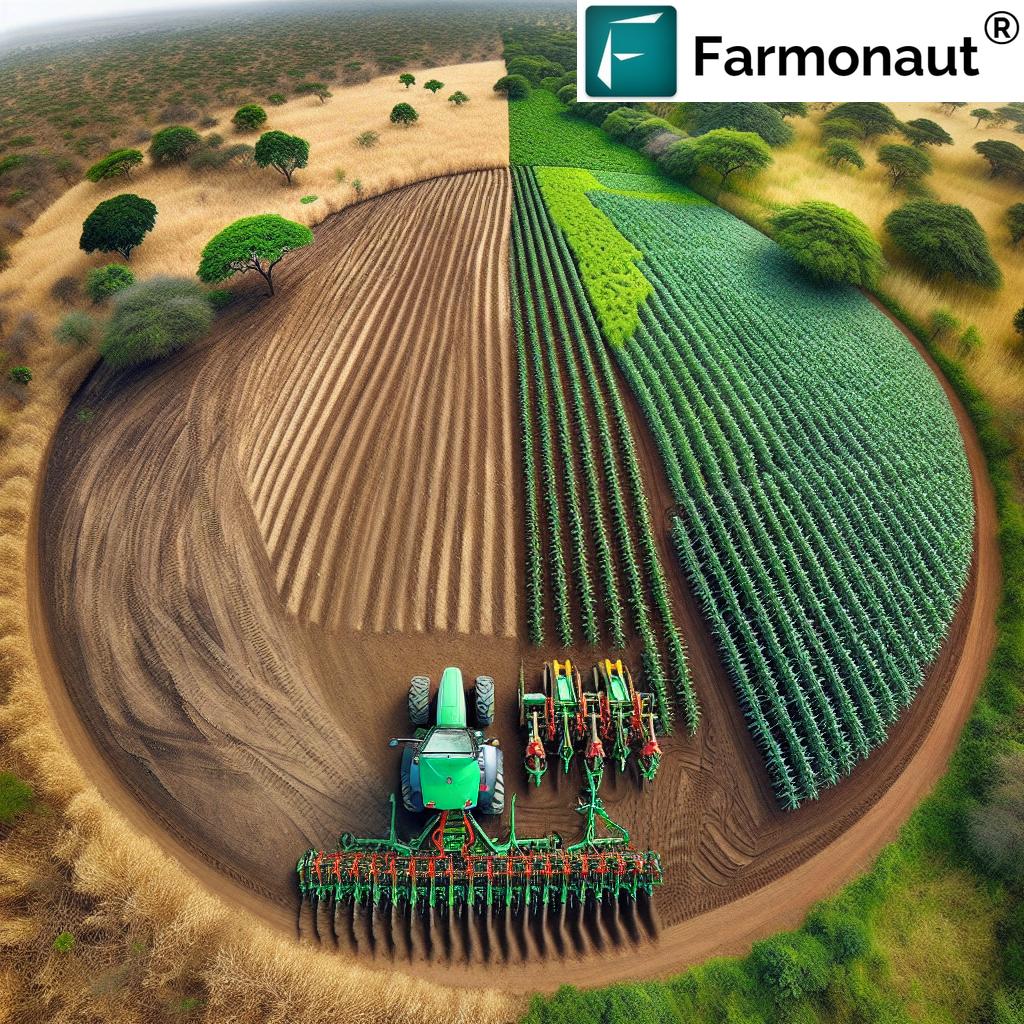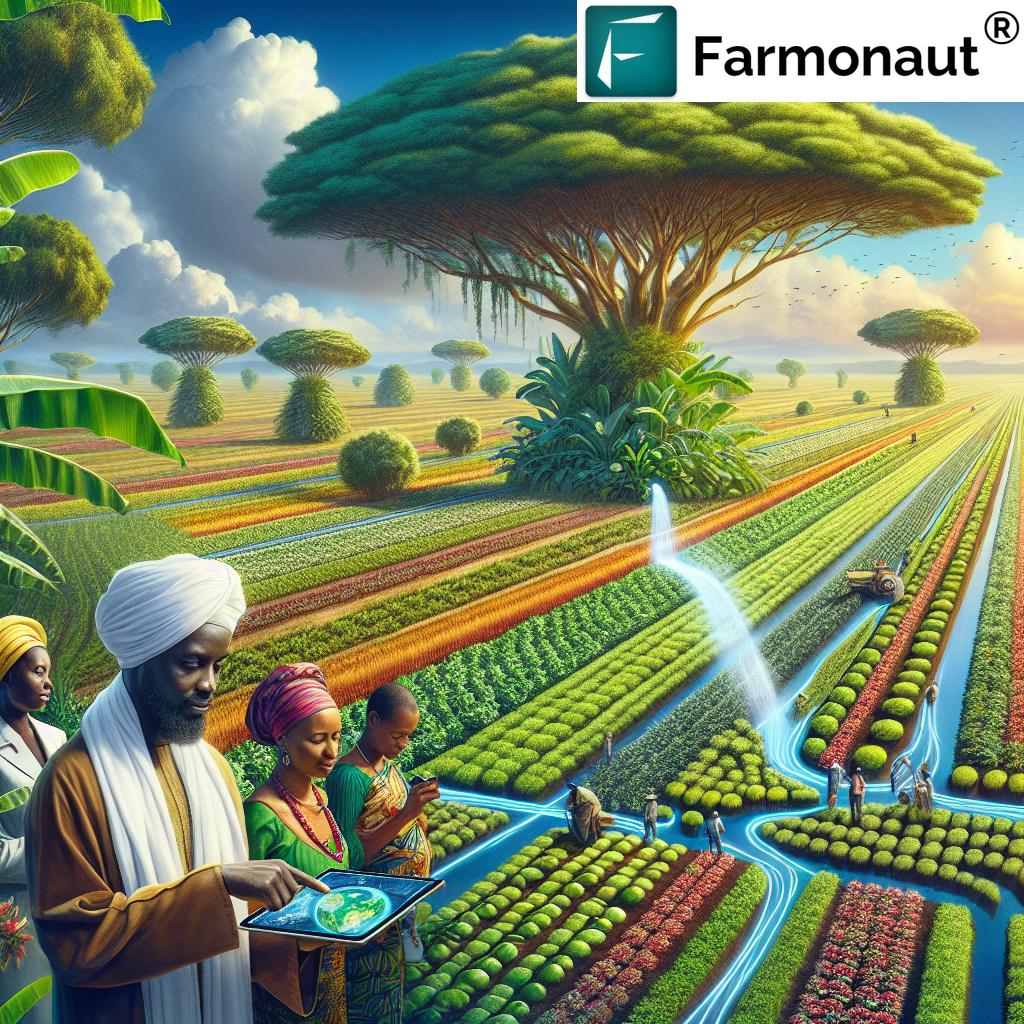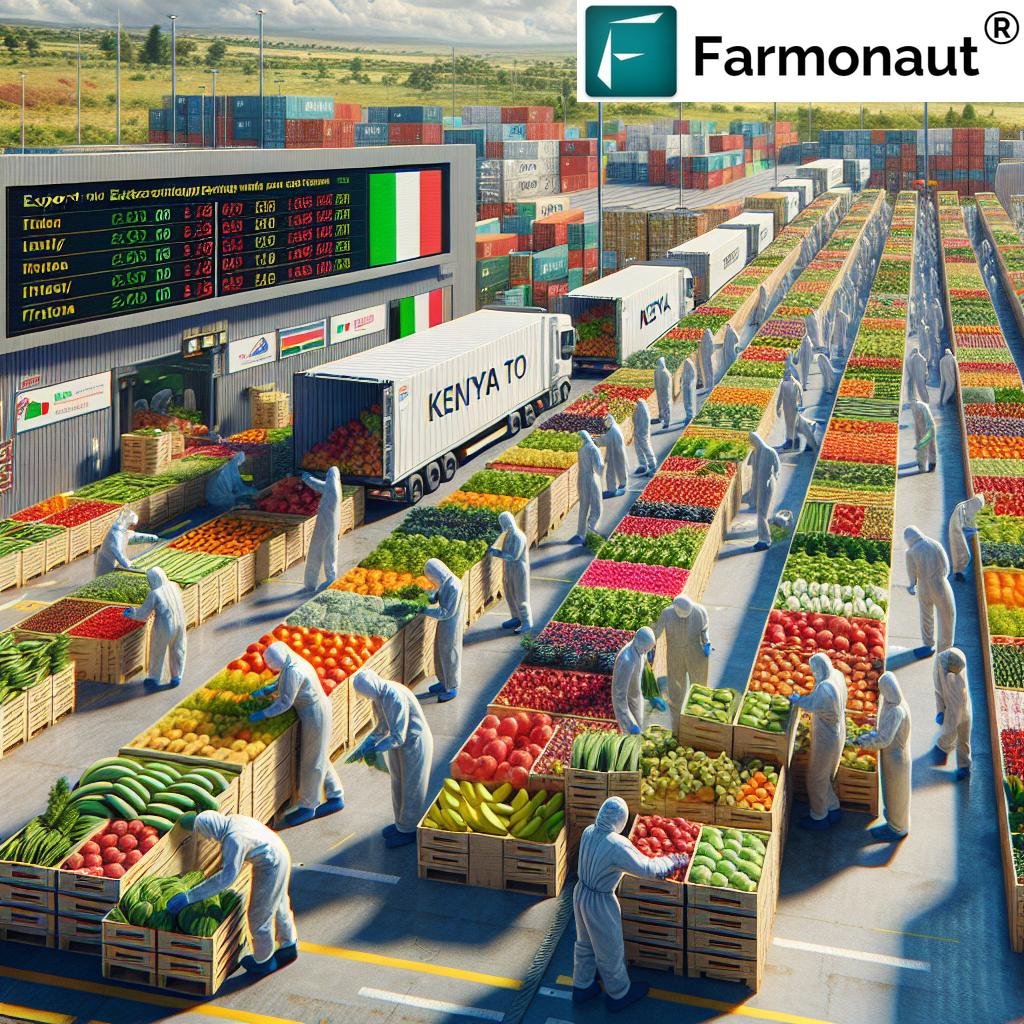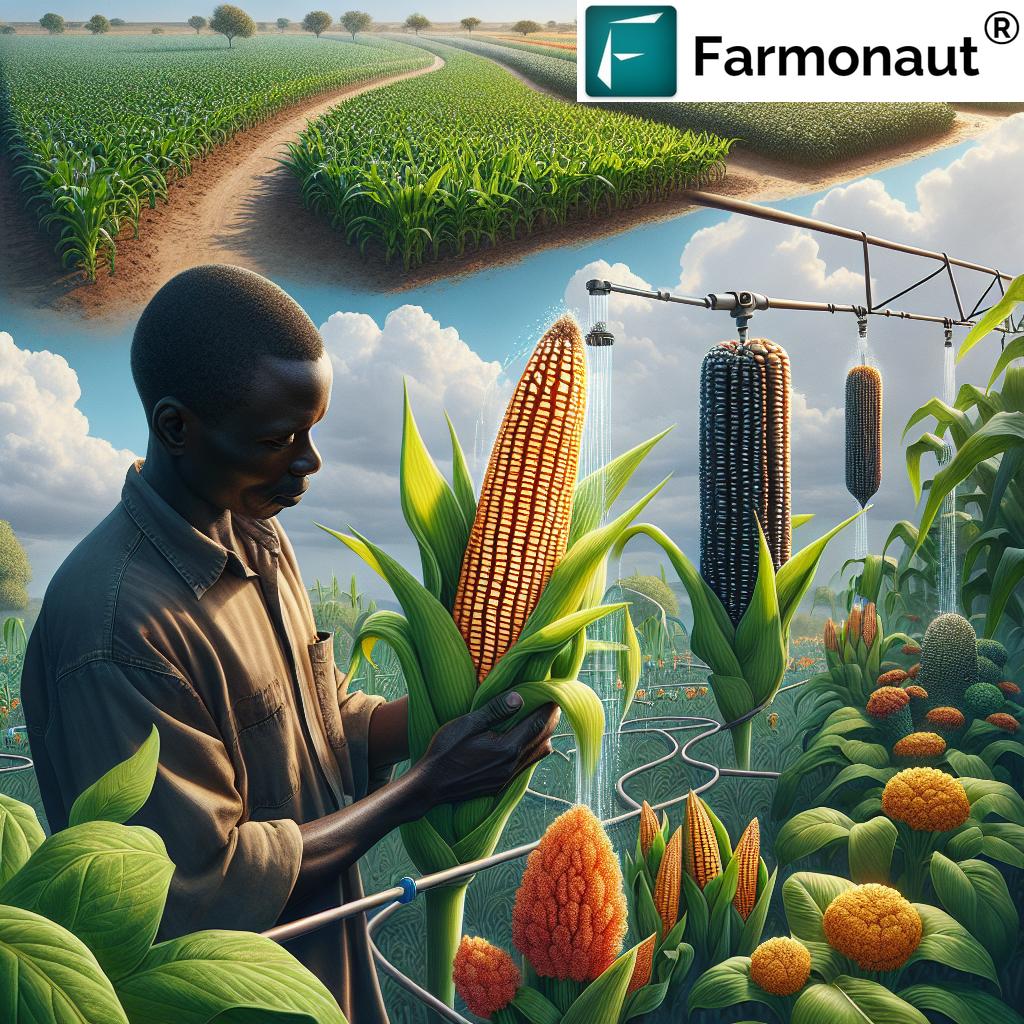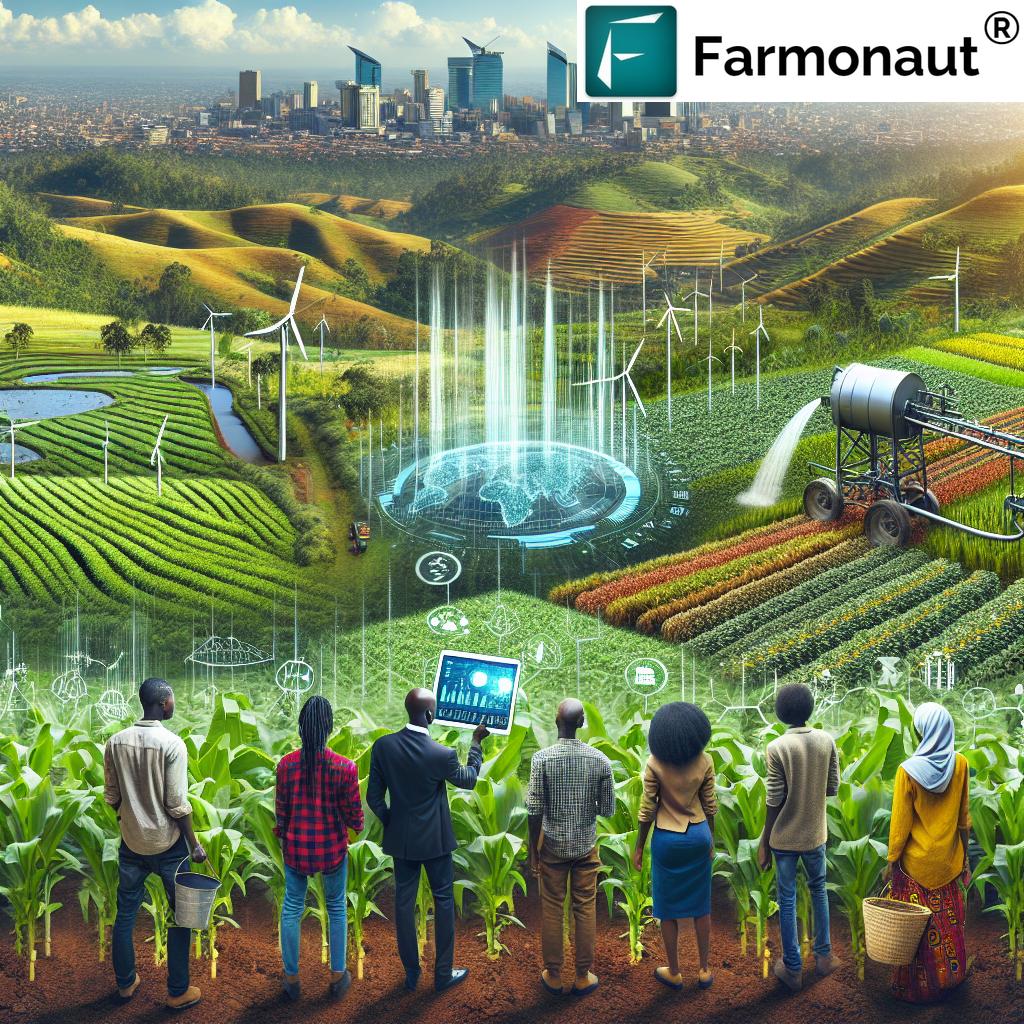Transforming Kisumu: Young Agripreneurs Pioneer Sustainable Farming and Waste Management Solutions
“Kisumu’s youth-led initiatives have reduced reliance on chemical fertilizers by up to 70% through innovative composting techniques.”
In the heart of Kenya’s vibrant Kisumu region, a remarkable transformation is taking place. We’re witnessing the birth of a sustainable agricultural revolution, driven by the passion and innovation of young agripreneurs. This inspiring story showcases how grassroots movements are revolutionizing farming practices, tackling climate change, and empowering local communities through sustainable agriculture in Kenya.
The Rise of Innovative Agritech Solutions in Kisumu
As we delve into the bustling streets of Kisumu’s Nyalenda informal settlement, we’re greeted by a blend of challenges and opportunities. Amidst the vibrant market life and the aroma of fresh fish, we encounter the harsh realities of waste piles, unemployment, and environmental degradation. However, it’s here that we find the seeds of change, planted by the Kisumu Young Agripreneurs (KIYA).
This youth-driven organization is at the forefront of implementing climate-smart farming practices and organic waste management techniques. Their mission? To transform the perception of agriculture from a last-resort occupation to a viable, innovative career path for Kenya’s youth.
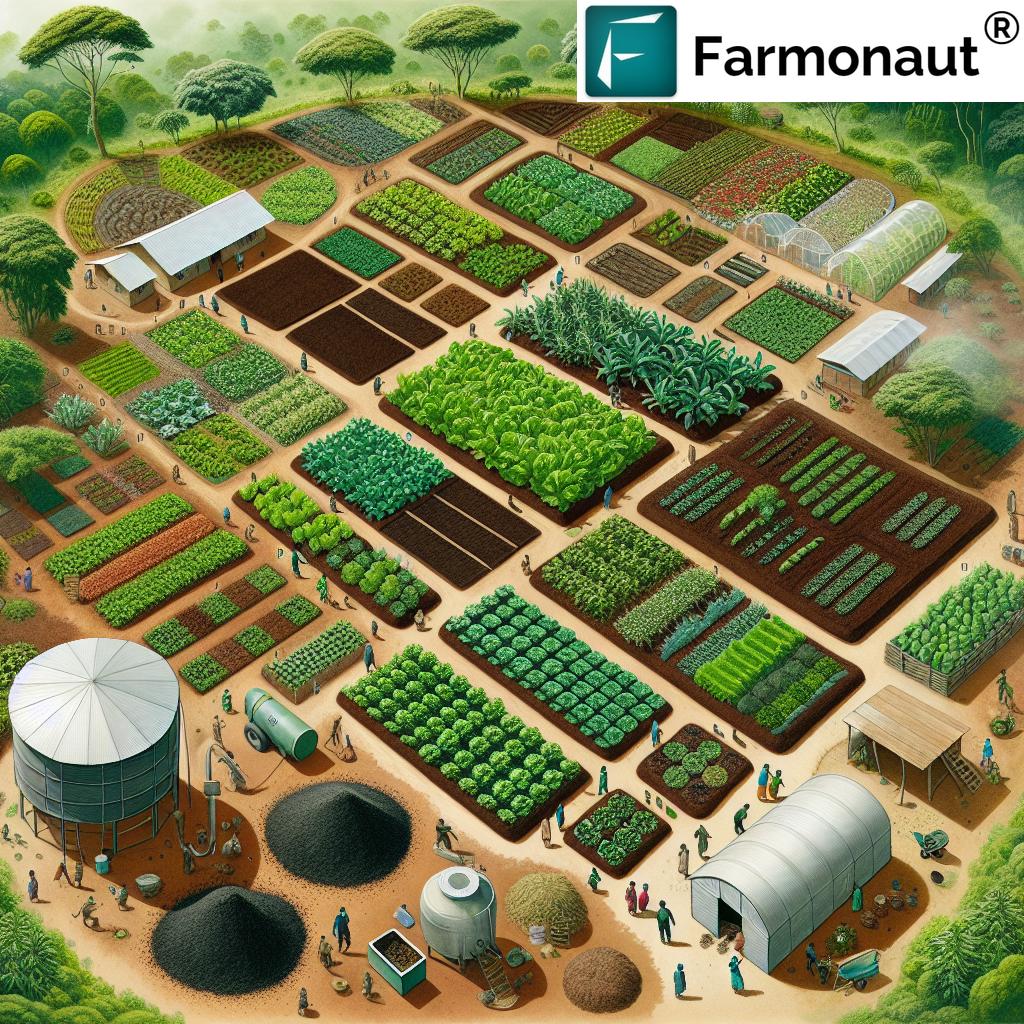
Pioneering Organic Waste Management Solutions
At the core of KIYA’s innovative approach is their focus on transforming organic waste into valuable resources. Let’s explore the key initiatives that are making waves in Kisumu’s agricultural landscape:
- Composting for Soil Health: KIYA collects organic waste from local markets like Kibuye and converts it into nutrient-rich compost. This sustainable practice not only addresses waste management issues but also rejuvenates exhausted soils, reducing the need for chemical fertilizers.
- Black Soldier Fly Farming: In an ingenious twist, KIYA has introduced black soldier fly farming to Kisumu. These industrious insects consume organic waste, producing high-quality fertilizer (frass) and protein-rich animal feed. This circular economy model exemplifies the innovative agritech solutions transforming local agriculture.
The impact of these initiatives is profound. In Kenya, where 40% of food produced is lost to waste, KIYA’s efforts are not just about agriculture – they’re about environmental stewardship and resource efficiency.
Empowering Communities Through Agricultural Training Programs
KIYA’s influence extends beyond waste management. They’ve developed comprehensive agricultural training programs that are empowering local farmers across Kisumu. These programs focus on:
- Teaching composting techniques
- Introducing black soldier fly farming methods
- Promoting climate-smart farming practices
- Enhancing soil health management
By participating in these training sessions, farmers are gaining the knowledge and skills to adopt eco-friendly techniques, reduce their reliance on chemical fertilizers, and improve their crop yields sustainably.
Innovative Technologies Addressing Post-Harvest Challenges
KIYA’s commitment to innovation doesn’t stop at farming practices. They’ve developed cutting-edge technologies to address post-harvest challenges faced by small-scale farmers:
- Evaporative Charcoal Coolers: These ingenious devices help preserve harvested produce, reducing post-harvest losses and extending the shelf life of fruits and vegetables.
- Aggregation Centre for African Leafy Vegetables: This facility serves as a hub for collecting, sorting, and marketing locally grown vegetables, improving market access for small-scale farmers.
These innovations are crucial in a region where post-harvest losses can significantly impact food security and farmer incomes.
The Power of Youth in Driving Agricultural Innovation
The story of KIYA is a testament to the power of youth in driving change. Founded by resilient young minds from Nyalenda, this organization is turning challenges into opportunities. Their headquarters, once a neglected space, now stands as a symbol of transformation with lush gardens and thriving fishponds.
For KIYA co-founder Roy Odawa, the local waste crisis is a personal challenge that fuels his drive for change. This personal connection to the community’s struggles is what makes KIYA’s efforts so impactful and authentic.
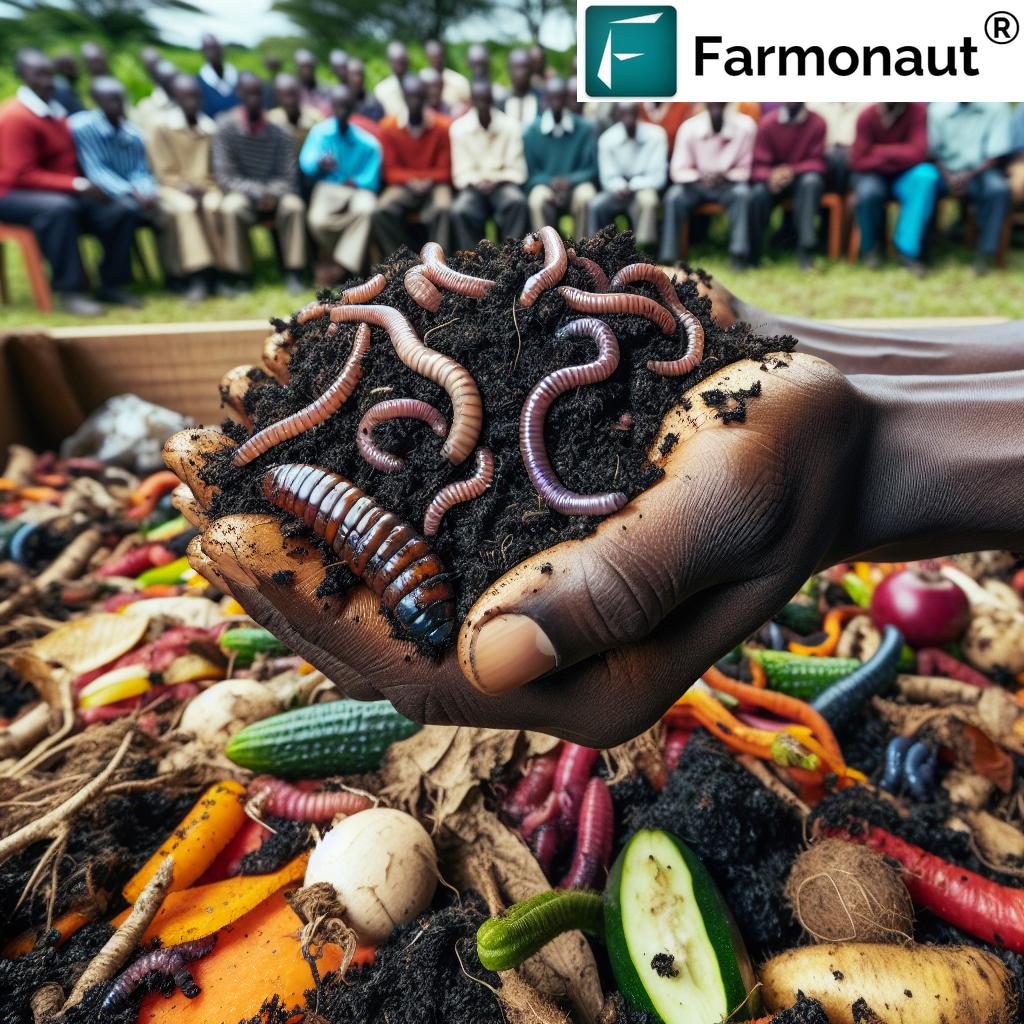
Creating a Circular Economy in Farming
“Black soldier fly farming in Nyalenda settlement converts 2 tons of organic waste into high-quality animal feed weekly.”
One of the most impressive aspects of KIYA’s work is their successful implementation of a circular economy model in farming. This approach is revolutionizing how we think about waste and resource management in agriculture:
- Waste Collection: Organic waste is collected from local markets and communities.
- Composting: Part of the waste is transformed into nutrient-rich compost.
- Black Soldier Fly Farming: The remaining waste feeds black soldier fly larvae.
- Dual Output: The process yields both high-quality fertilizer (frass) and protein-rich animal feed.
- Application in Agriculture: The compost and frass are used to enrich local farms, while the animal feed supports livestock farming.
- Reduced Chemical Inputs: This cycle significantly reduces the need for chemical fertilizers and imported animal feed.
This circular economy approach not only addresses waste management issues but also creates new economic opportunities and improves food security in the region.
The Role of Technology in Sustainable Farming
While KIYA’s work is rooted in local innovation, it’s important to recognize the role that broader technological advancements play in supporting sustainable agriculture. For instance, platforms like Farmonaut are revolutionizing farming practices through satellite-based crop health monitoring and AI-driven advisory systems.
These technologies complement grassroots efforts by providing:
- Real-time crop health insights
- Precision agriculture techniques
- Resource management tools
- Weather forecasting for informed decision-making
By integrating such technologies, farmers can further optimize their practices, reduce resource wastage, and improve yields sustainably.
Impact on Food Waste Reduction and Environmental Conservation
The initiatives spearheaded by KIYA are making significant strides in addressing two critical challenges: food waste reduction and environmental conservation. Here’s how their efforts are contributing to these crucial areas:
Food Waste Reduction Strategies
- Efficient Waste Collection: By collecting organic waste from markets and communities, KIYA prevents a substantial amount of food waste from ending up in landfills.
- Value Addition to Waste: Through composting and black soldier fly farming, what was once considered waste is now a valuable resource for agriculture.
- Improved Storage Solutions: The introduction of evaporative charcoal coolers helps farmers preserve their produce longer, reducing post-harvest losses.
Environmental Conservation
- Reduced Methane Emissions: By diverting organic waste from landfills, KIYA’s initiatives help reduce methane emissions, a potent greenhouse gas.
- Soil Health Improvement: The use of organic compost and frass enriches soil health, promoting biodiversity and sustainable land use.
- Decreased Chemical Runoff: As farmers reduce their reliance on chemical fertilizers, there’s less harmful runoff into local water systems.
These efforts align perfectly with Kenya’s broader climate goals and demonstrate how local actions can have far-reaching environmental impacts.
Empowering the Next Generation of Agricultural Leaders
One of the most inspiring aspects of KIYA’s work is its focus on youth empowerment in agriculture. By engaging young people in innovative farming practices, KIYA is changing the narrative around agriculture as a career choice. Here’s how they’re making a difference:
- Skills Development: Young people are trained in modern agricultural techniques, business management, and sustainable practices.
- Entrepreneurship Opportunities: KIYA encourages youth to start their own agribusinesses, providing mentorship and support.
- Technology Integration: By incorporating modern technologies, KIYA makes agriculture more appealing to tech-savvy youth.
- Community Leadership: Young agripreneurs are positioned as leaders in their communities, driving change and innovation.
This focus on youth empowerment is crucial for the future of agriculture in Kenya and serves as a model for other regions facing similar challenges.
The Role of Partnerships in Sustainable Development
While KIYA’s success is primarily driven by local innovation and commitment, the importance of strategic partnerships cannot be overlooked. Collaborations with various stakeholders have played a crucial role in scaling up their impact:
- Local Government Support: Partnerships with local authorities have helped in securing land and resources for KIYA’s initiatives.
- Educational Institutions: Collaborations with universities and agricultural colleges provide access to research and expertise.
- Private Sector Engagement: Partnerships with local businesses help in creating market linkages for farmers.
- International Organizations: Support from international bodies provides resources and global best practices.
These partnerships demonstrate the power of collaborative efforts in driving sustainable agricultural development.
Challenges and Future Prospects
While the success of KIYA’s initiatives is evident, it’s important to acknowledge the challenges they face and the road ahead:
Current Challenges
- Scaling Up: Expanding operations to reach more farmers and communities.
- Financial Sustainability: Ensuring long-term financial viability of the initiatives.
- Changing Mindsets: Overcoming traditional farming practices and skepticism towards new methods.
- Infrastructure Limitations: Dealing with inadequate infrastructure for waste collection and processing.
Future Prospects
- Technology Integration: Further incorporating advanced technologies like IoT and AI in farming practices.
- Policy Influence: Working with policymakers to create supportive frameworks for sustainable agriculture.
- Regional Expansion: Replicating the model in other parts of Kenya and East Africa.
- Research and Innovation: Continuing to develop new solutions for agricultural challenges.
The journey of KIYA and similar initiatives in Kisumu represent a beacon of hope for sustainable agriculture in Kenya and beyond. Their story is not just about farming; it’s about resilience, innovation, and the power of community-driven change.
Impact of Sustainable Farming Initiatives in Kisumu
| Initiative | Environmental Impact | Economic Impact | Social Impact |
|---|---|---|---|
| Composting | 50% reduction in organic waste | 30% increase in crop yields | 200 youth employed |
| Black Soldier Fly Farming | 2 tons of waste processed weekly | 40% reduction in feed costs for farmers | 150 new jobs created |
| Evaporative Charcoal Coolers | 30% reduction in post-harvest losses | 25% increase in farmer income | 100 farmers benefited |
| Aggregation Centers | 20% reduction in transport emissions | 35% improvement in market access | 500 small-scale farmers supported |
| Agricultural Training Programs | 40% adoption of sustainable practices | 20% increase in farm productivity | 1000 farmers trained |
Embracing Technology for Sustainable Agriculture
As we look to the future of sustainable agriculture in Kenya, it’s clear that technology will play an increasingly vital role. Platforms like Farmonaut are at the forefront of this technological revolution in farming. Let’s explore how such technologies can complement and enhance the grassroots efforts we’ve seen in Kisumu:
- Satellite-Based Crop Monitoring: Advanced satellite imagery can provide farmers with real-time insights into crop health, helping them make informed decisions about irrigation, fertilization, and pest management.
- AI-Powered Advisory Systems: Artificial intelligence can analyze complex data sets to provide personalized recommendations to farmers, optimizing their practices for local conditions.
- Blockchain for Traceability: Implementing blockchain technology in agriculture can enhance supply chain transparency, benefiting both farmers and consumers.
- Precision Agriculture: By leveraging data from various sources, farmers can apply inputs more precisely, reducing waste and environmental impact.
These technological advancements can significantly amplify the impact of initiatives like those led by KIYA, creating a more resilient and sustainable agricultural sector.
For those interested in exploring these technologies further, consider checking out the Farmonaut app or their API services for developers.
Conclusion: A Green Revolution in Kisumu
The story of Kisumu’s young agripreneurs is more than just a tale of agricultural innovation; it’s a powerful narrative of community resilience, environmental stewardship, and youth empowerment. Through their tireless efforts, these young innovators are not only transforming the agricultural landscape of Kisumu but also setting a blueprint for sustainable development across Kenya and beyond.
From turning organic waste into valuable resources to empowering farmers with knowledge and innovative technologies, the initiatives in Kisumu demonstrate the immense potential of sustainable agriculture to address pressing environmental and social challenges. As we look to the future, it’s clear that the combination of grassroots innovation, youth engagement, and technological advancement will be key to creating a more sustainable and food-secure world.
The journey of KIYA and similar initiatives in Kisumu serves as an inspiration and a call to action. It shows us that with creativity, determination, and community support, we can transform challenges into opportunities, creating a greener, more prosperous future for all.
FAQs
- What is KIYA and what do they do?
KIYA (Kisumu Young Agripreneurs) is a youth-driven organization in Kisumu, Kenya, that focuses on sustainable agriculture and waste management. They implement innovative farming practices, conduct agricultural training, and develop solutions for organic waste management. - How does black soldier fly farming contribute to sustainable agriculture?
Black soldier fly farming helps convert organic waste into high-quality animal feed and fertilizer (frass). This process reduces waste, provides an alternative protein source for livestock, and produces organic fertilizer for crops. - What are the main challenges faced by young agripreneurs in Kisumu?
Key challenges include scaling up operations, ensuring financial sustainability, changing traditional mindsets about farming, and overcoming infrastructure limitations for waste management. - How can technology support sustainable farming initiatives like those in Kisumu?
Technology can provide real-time crop monitoring, AI-powered advisory systems, precision agriculture tools, and blockchain-based traceability. These innovations help farmers make informed decisions, optimize resource use, and improve market access. - What impact have these sustainable farming initiatives had on the local community?
These initiatives have created employment opportunities, improved soil health, reduced reliance on chemical fertilizers, increased crop yields, and promoted youth engagement in agriculture. They’ve also contributed to better waste management and environmental conservation in Kisumu.









